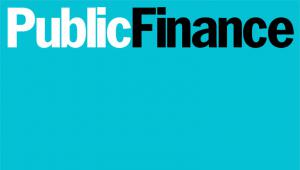In a report published today, the Public Accounts Committee analysed the performance of the government’s household energy saving schemes, including Green Deal loans, the Green Deal Finance Company and the Energy Company Obligation.
It echoes the findings of a National Audit Office review, which concluded in April that the Green Deal, run by the Department of Energy and Climate Change, was not value for money.
The PAC report highlighted a claim by the DECC that Green Deal Finance Company would provide loans of £1.1bn by the end of 2015. In reality, the eventual figure was £50m, barely 5% of the target.
In explaining the low update, the committee said the schemes were not adequately discussed with consumers during their inception, which meant a successful marketing strategy was not implemented. Consequently, consumers were not aware of how to apply, and those that did found the process to be overly complex involving excessive paperwork.
These factors, combined with a relatively high interest rate for Green Deal loans of 7-10%, meant that consumers were ultimately unconvinced by the offer to make household improvements that would bring down CO₂ and save money over time.
Estimations of the demand for loans given to Parliament were wildly optimistic, according to the committee, and “gave a completely misleading picture of the scheme’s prospects to Parliament and other stakeholders”.
Although the report found the ECO scheme had led to energy improvements in over 1.4m homes, it warned that the government lacked the information it needs to measure progress against the stated goals of the ECO, particularly in the area of fuel poverty.
The DECC set up the Green Deal and ECO scheme in 2013 in an attempt to improve the efficiency of households across Britain. The department spent £240m setting up and stimulating demand for loans under the Green Deal. The aim was to enable households to take out loans to pay for efficiency measures which they would then repay through their energy bill.
However, as a result of low demand for green loans, the Green Deal Company has incurred large financial losses, with the DECC writing off the £25m it loaned to the organisation to cover set-up and operational costs. The committee also observed that the department had no formal authority over approving the budget of the company.
This has led to criticisms over the accountability of the scheme, which was described by Meg Hillier MP, chair of the PAC as “institutionally weak”.
She said: “The government rushed into the Green Deal without proper consideration of concerns about its weaknesses.”
Hillier explained that not enough work had gone into establishing the scheme’s appeal to households, nor to its implementation, nor to examining the experience of governments setting up similar schemes overseas.
“The blinkered approach resulted in a truly dismal take-up for Green Deal loans and a cost to taxpayers of £17,000 for every loan arranged. Savings in CO2 were minimal,” she added.
She concluded that households and taxpayers had been “ill-served by these scheme” and advised the government to learn from its mistakes to ensure they were not repeated elsewhere.
Caroline Flint, MP, a member of the PAC involved in the report said she was “deeply alarmed” that the predictions made by the government were so wide of the mark, despite what she described as being “serious concerns raised about the scheme’s design and implementation”.
She concluded that it “painted a picture of a government hell-bent on implementing a policy regardless of whether it represented value for money”.



















